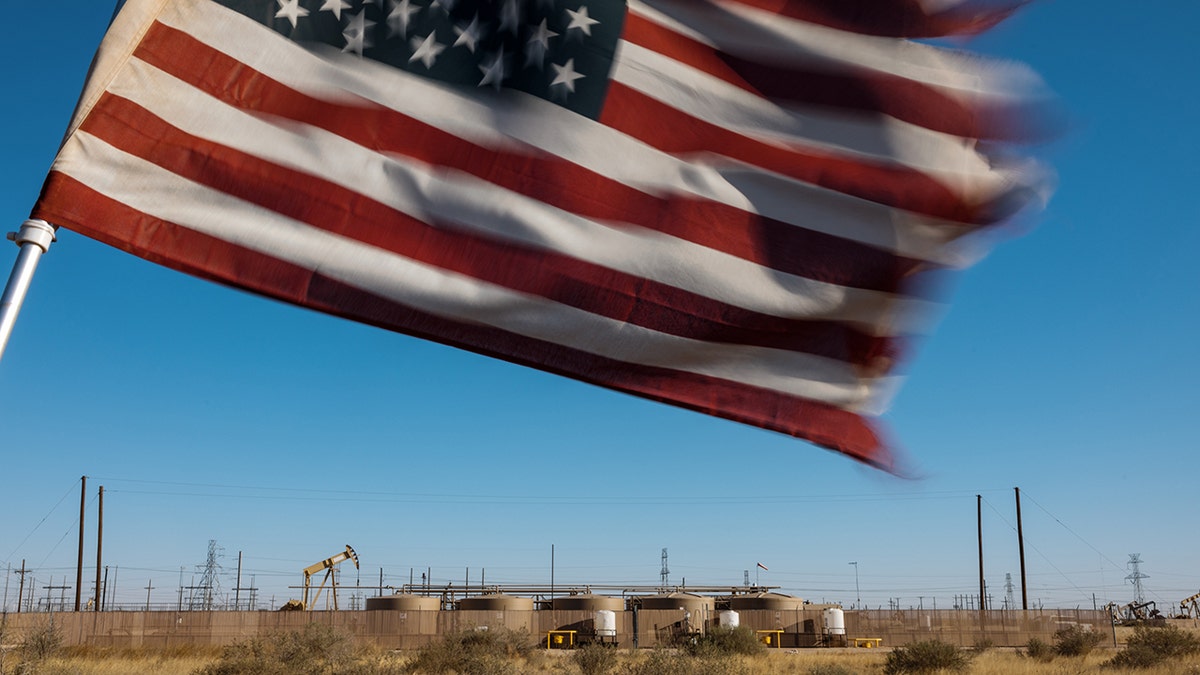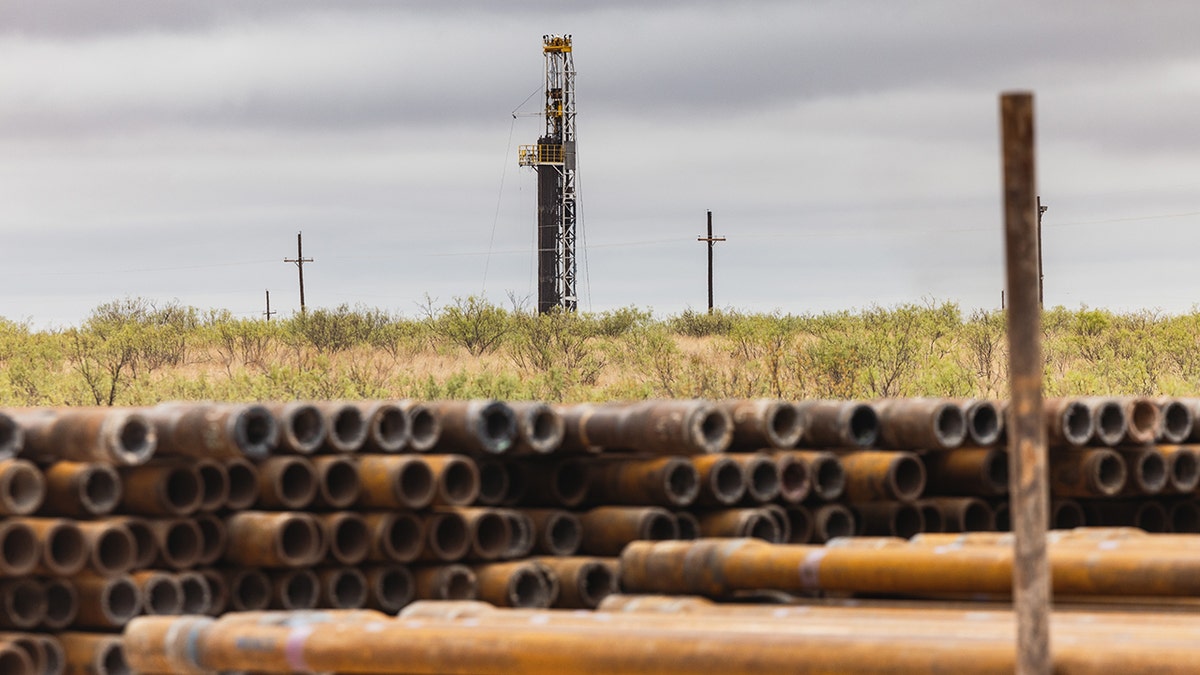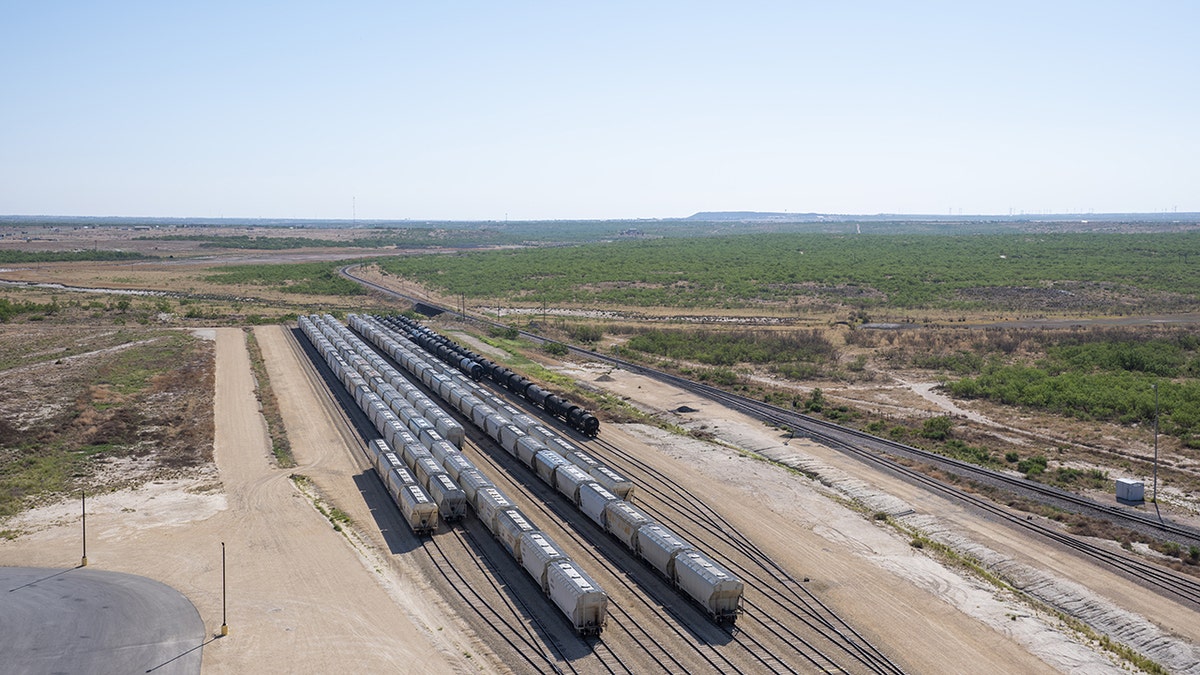Fox News Flash top headlines for March 28
Fox News Flash top headlines are here. Check out what's clicking on Foxnews.com.
A health advocacy non-profit study found thousands of pounds of "forever chemicals" have been injected into Texas oil and gas wells over the past decade.
A new study by Physicians for Social Responsibility (PSR) shows that since at least 2013, oil and gas companies have used more than 21 tons -- or 43,000 pounds -- of a class of extremely toxic and persistent chemicals, known as per-and polyfluoroalkyl substances (PFAS), in hydraulic fracturing of oil and gas wells in Texas. Known for their toxicity at microscopic levels, their multiple negative health effects, including cancer, and their resistance to breaking down in the environment, PFAS are a highly dangerous class of chemicals nicknamed "forever chemicals."
The analysis identified two types of "forever chemicals" used in Texas’ oil and gas wells, PTFE/Teflon and fluoroalkyl alcohol substituted polyethylene glycol.
The Texas Tribune reported that perfluoroalkyl and polyfluoroalkyl substances were developed in the 1930s and first praised for their ability to prevent eggs from sticking to a pan, making rain roll off jackets, and it was added to fire-fighting foams to put out major blazes quicker.
PHILADELPHIA OFFICIALS REPORT NO CHEMICALS IN WATER AFTER NEARBY SPILL

An American flag at the entrance to an oil lease in Odessa, Texas. A new study is sounding the alarm over the use of PFAS in hydraulic fracturing in Texas. (Jordan Vonderhaar/Bloomberg via Getty Images)
As research progressed, PFAS have been linked to birth defects, cancer and other serious diseases. Despite the chemicals’ ability to persist in water, soil and human blood, PFAS are still used in everything from waterproof camping gear to fast food containers, the Tribune reported.
Barb Gottlieb, an author on the PSR study, told the Tribune that PFAS are used to reduce friction for drill bits as they move through the ground.
Because PFAS can also go airborne if the substance is pumped into a well and that well is then flared or vented, which is common in Texas, Gottlieb explained people could absorb these "forever chemicals" through their lungs and some small molecules could pass into the bloodstream. The Tribune noted how in some areas of that state, like the Fort Worth region, homes, day cares and businesses are located within a few hundred feet of flaring gas wells. Research is limited in the effects of airborne PFAS.
State Rep. Penny Morales Shaw, a Democrat representing Houston, introduced a bill on March 9 calling on the president of the University of Houston to designate a department or entity at the university to conduct, in collaboration with the Railroad Commission of Texas and the Texas Commission on Environmental Quality, a study on the use of perfluoroalkyl and polyfluoroalkyl chemicals in the hydraulic fracturing process.
IMMIGRATION LAW FACES FIRST AMENDMENT CHALLENGE BROUGHT BEFORE SUPREME COURT

Since at least 2013, Texas oil and gas companies have used more than 21 tons of a class of chemicals known as PFAS, a new study found. (Jordan Vonderhaar/Bloomberg via Getty Images)
The official, state-sponsored study would analyze the extent to which those forever chemicals are used in the fracking process, whether the public may be exposed to those chemicals through air or water, potential human health and environment risks, the feasibility of alternatives to be used in the fracking process and whether perfluoroalkyl and polyfluoroalkyl chemicals should be restricted from use in fracking in the state altogether.
"PSR’s report highlighted shortcomings in disclosure standards and accountability, particularly up the chain regarding the manufacturing of chemical products that are used in fracking fluids," Morales Shaw said in a statement obtained by the Tribune.

Railcars carrying fracking sand from out of state at the Twin Eagle Permian Rail Terminal in Big Spring, Texas, on June 22, 2022. A state bill is pushing for an official study into the use and health risks of PFAS in fracking in the state. (Matthew Busch/Bloomberg via Getty Images)
PSR noted that Texas’s industry-friendly disclosure rules prevent the public from knowing how widely PFAS or other toxic chemicals have been used in fracking or other methods or stages of oil and gas drilling and extraction. Between 2013 and 2022, oil and gas companies injected more than 58,000 oil and gas wells in 183 of Texas’s 253 counties with at least one fracking chemical whose identity the companies withheld from the public through "trade secret" designations.
CLICK HERE TO GET THE FOX NEWS APP
The analysis found that during that same period, frackers used another 3 million tons of potentially toxic chemicals that remain unidentified.
"Evidence that PFAS is being used in Texas’s oil and gas wells is alarming, and the scale of trade secret chemical use in the state is staggering," the report’s lead author, Dusty Horwitt, J.D., said in a statement. "Texas officials should act immediately to protect the public by prohibiting the use of PFAS in oil and gas extraction and requiring full disclosure of all chemicals used in oil and gas wells."



